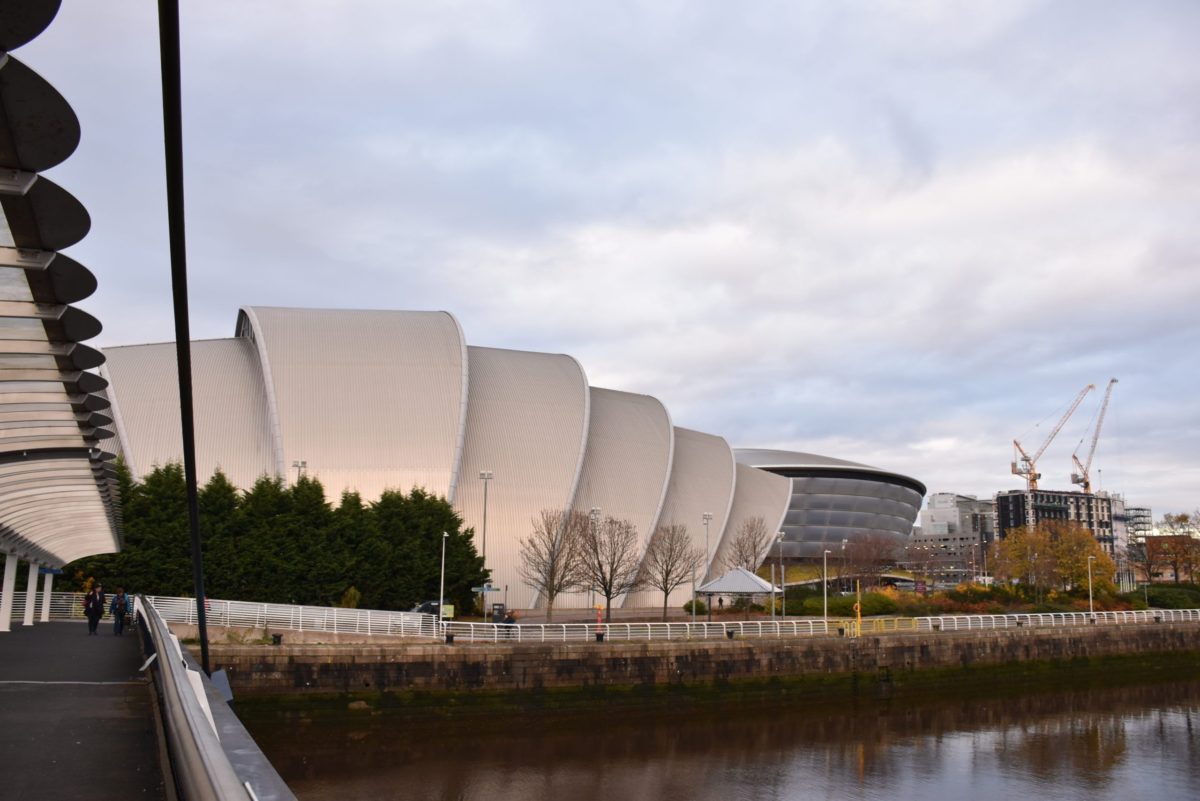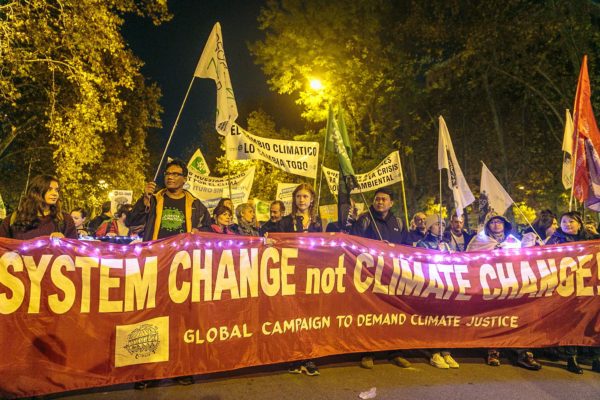
Coronavirus & COP26 Delay: Let’s Pause, Reflect then Change the System
Last week the United Nations announced that the annual Climate Talks, known as COP26, scheduled to be held in Glasgow in November this year, will be postponed until 2021 due to the Coronavirus crisis. The news may have come as a blow to many activists and campaigners across the country who have been working hard to use the moment of the these talks to fight for climate justice.
In this blog we explore what the delay means for our work building the climate justice movement here in Scotland, and how we can continue our work in this challenging context.
COP26 – postponed until when?
In our view it’s understandable that the UNFCCC have decided to postpone the COP as the immediate health and safety of people and international action to address the COVID-19 pandemic should take priority. Every effort must be made to save lives and protect the poorest and most vulnerable who will suffer the most in this crisis.
Of course, the climate crisis remains as urgent as ever, but a delayed COP26 should not stop Governments around the world from increasing their ambition to tackle it. Crucially, rich countries must not use the postponement of the talks to delay taking urgent action on reducing emissions and providing climate finance for global south countries on the frontline of impacts.
We consider that the climate talks should go ahead as soon as it is safe to hold them, but that it is essential that they do so on the basis that global south nations are able to fully attend and demand the action necessary to deal with the climate emergency. This means full access for global south nations, experts and activists.
With the huge caveat that we are in the very early stages of the COVID-19 crisis in Europe and all the uncertainties that come with it, we consider spring 2021 is a reasonable timeframe to anticipate a fully participative COP26 taking place. It’s likely that we will get a further update on COP26 timing in August when the UN meets to review the tentative date of the intersessional meeting, postponed from June to October.
Movement building continues
Our work around COP26 has always been focused on the value of the summit as an opportunity for building our movement and this remains our priority. The work that countless groups, organisations and individuals across Scotland and the UK have put into creating a powerful and diverse movement for climate justice is not going away, and provides a strong basis on which to continue our fight for a better world.
We also know that the climate crisis has not gone away and that many communities are now dealing with the reality of climate impacts and coronavirus hitting at the same time. Our movement is clearly needed now more than ever.
However, we have to acknowledge that this work becomes more challenging in the current context. Strict social distancing measures in place for an anticipated 12 weeks rules out much of our traditional ways of campaigning and organsing, and brings huge disruption to many of our personal lives.
With the timing of the COP ‘moment’ now unclear and many unknowns about the medium to longer term implications of the COVID-19 crisis, we are operating in a great deal of uncertainty.
As a movement then, we need to make space for ourselves and each other to adjust to the context we find ourselves in and come to terms with the losses this brings on many fronts, while recognising the primary importance of public health at this moment. This is an essential part of movement building, and will help us become more resilient for the challenges ahead.

Holding Governments and Polluters to account
Our work on challenging polluters and fighting for climate justice is of course as important as ever. But we need to be sensitive to the fact that Governments tackling this very real and immediate health crisis are understandably putting certain areas of work on hold.
We need to get the balance right between holding Government to account and recognising that its energies are focused on this very immediate crisis at the moment.
There are new questions arising about how we continue to hold big polluters to account in this context. Many of the big corporations who have been wrecking our climate and communities for decades, are now positioning themselves as hero of the hour, through initiatives such as building plants to produce hand sanitiser and giving free food and fuel to health care and emergency service workers.
We can learn from the 2008 economic crash and anticipate requests for bailout from these same companies when the economic impact of coronavirus really starts to hit. This will be a key moment for our movement to come together and demand a bailout for people not polluters. That’s why we have joined with hundreds of organisations in calling for a #JustRecovery to COVID-19.
Pause, reflect then System Change
Our movement’s call for ‘system change not climate change’ is more relevant than ever, as this crisis has made it clear to so many of us that the current system is broken that there can be no return to ‘normal’. But we should give ourselves time to pause, reflect and get our approaches on these things right. That will take time and patience in these very challenging and uncertain times.
To help with that, over the next few weeks we will be holding a series of spaces to have conversations around some of these issues with our supporters and allies in the wider movement.
Our climate campaigners discussed the links between our work on climate change and the coronavirus crisis in a recent webinar. Watch a recording of it here
In the meantime, take care and stay healthy.
